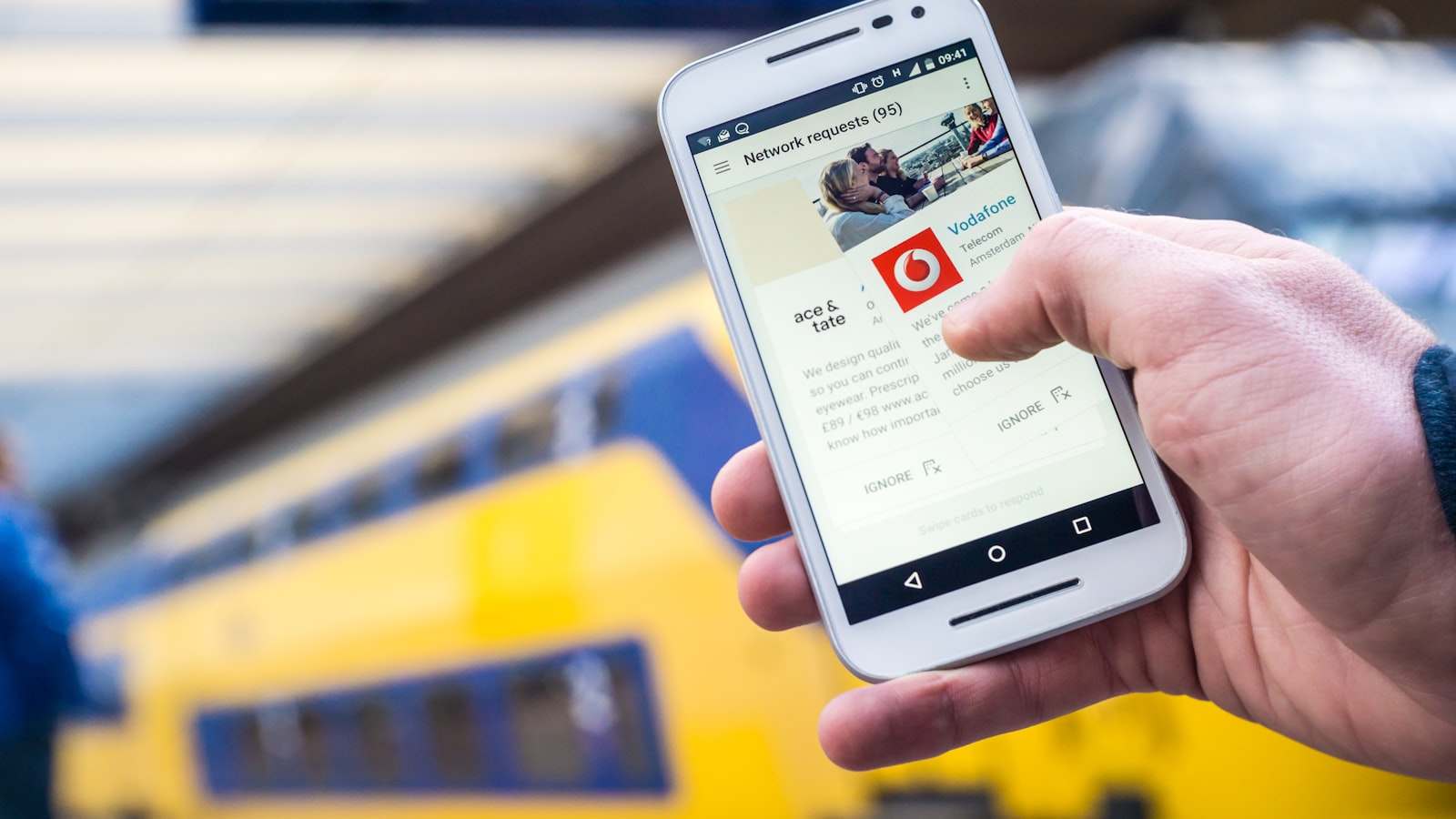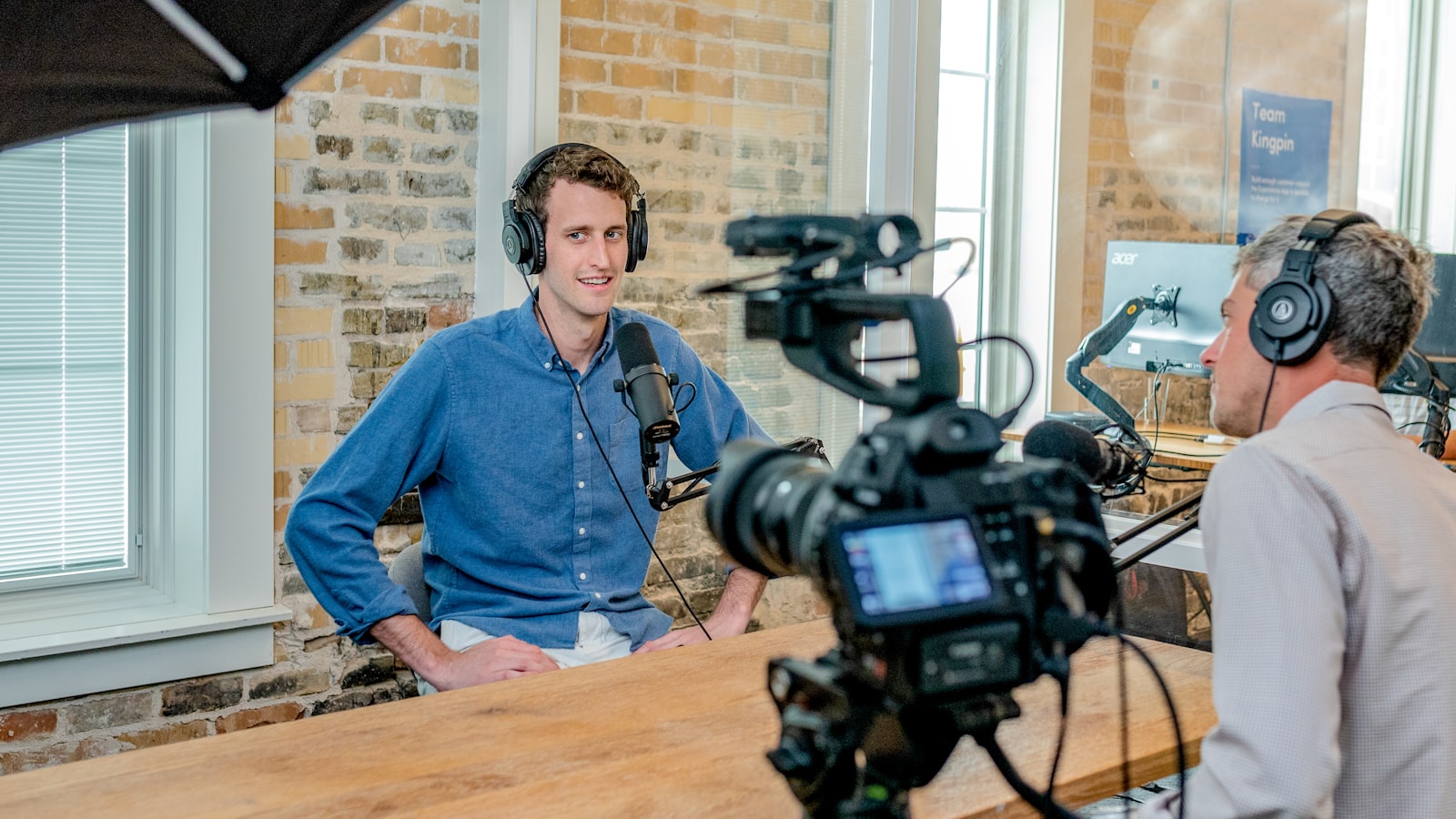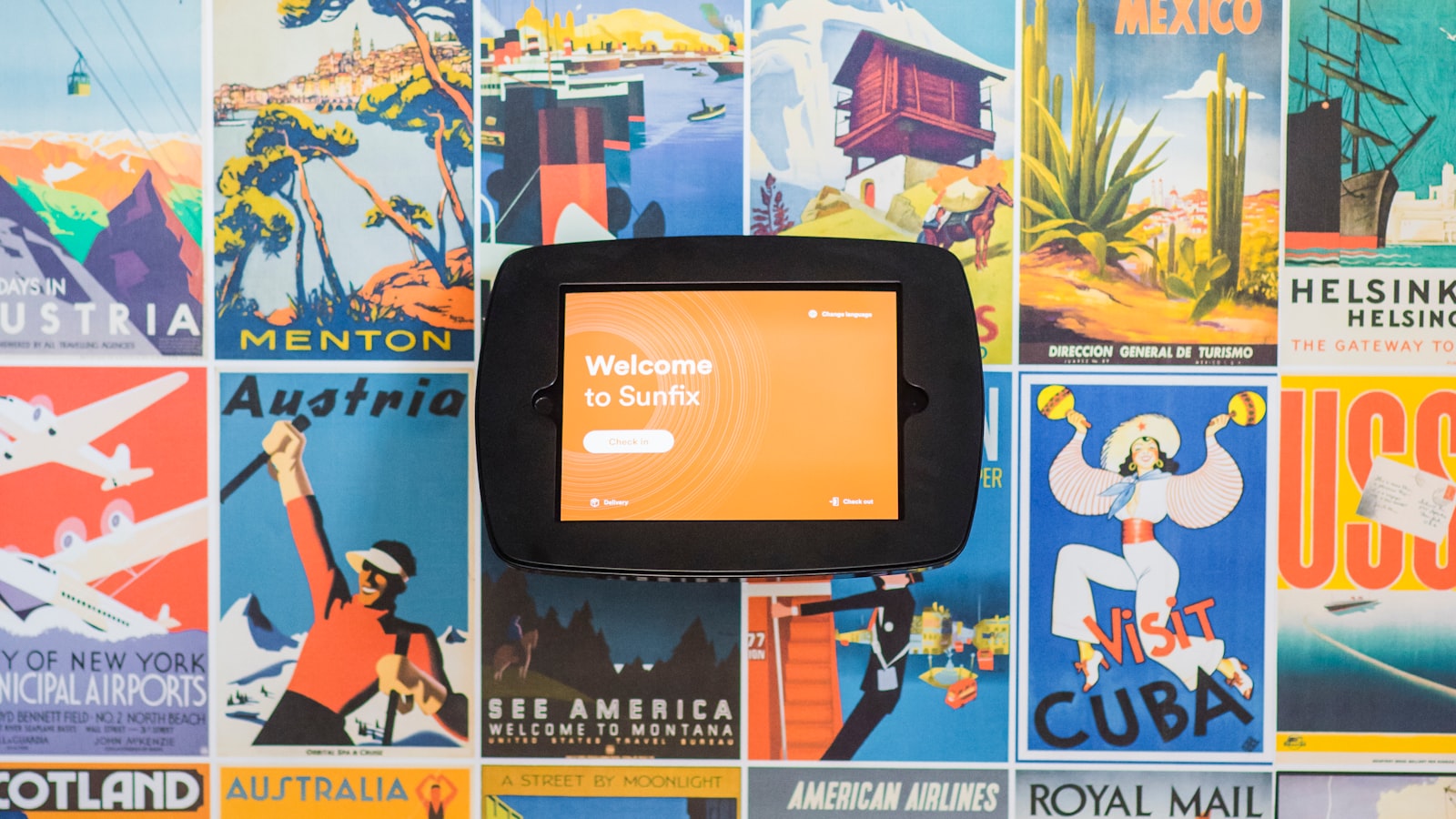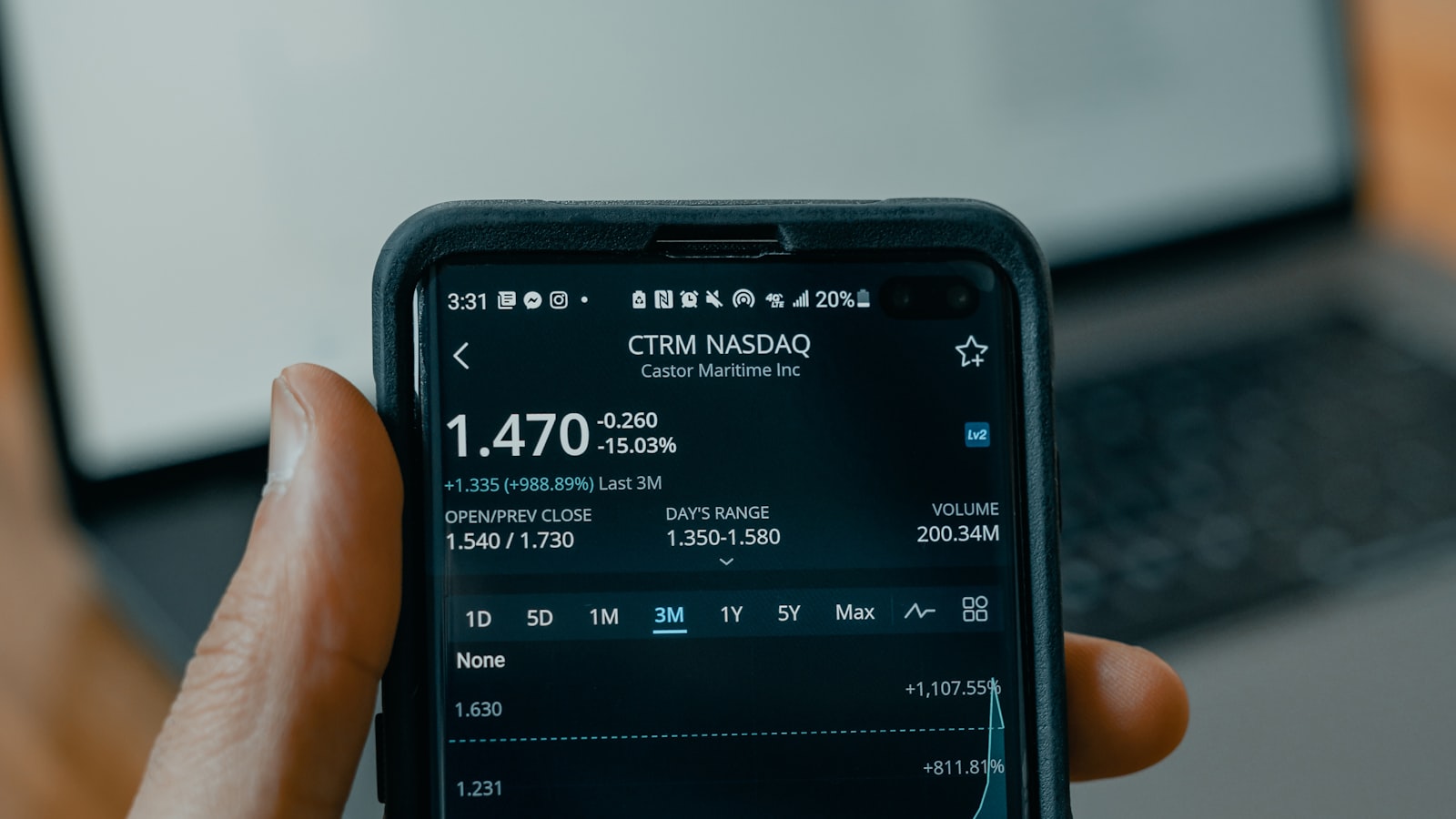The Role of Influencer Marketing in Programmatic SEO for Ecommerce
The Role of Influencer Marketing in Programmatic SEO for Ecommerce
The Role of Influencer Marketing in Programmatic SEO for Ecommerce
Discover how influencer marketing can boost your ecommerce SEO strategy. Learn the impact of influencers on programmatic SEO for better online visibility.
Discover how influencer marketing can boost your ecommerce SEO strategy. Learn the impact of influencers on programmatic SEO for better online visibility.



Introduction to Influencer Marketing in Programmatic SEO for Ecommerce
Imagine combining the persuasive power of influencer marketing with the precision of programmatic SEO to elevate your ecommerce brand's online presence. This potent blend can significantly enhance your visibility and drive sales. But how exactly does this synergy work? Let’s dive into the essentials of influencer marketing and programmatic SEO, and understand why their integration can be a game-changer for your ecommerce strategy.
What is Influencer Marketing?
Influencer marketing leverages the reach and credibility of individuals with a substantial following on social media platforms to promote products or services. By partnering with influencers, brands can tap into their engaged audiences, building trust and driving conversions. Influencers create authentic content that resonates with their followers, making them valuable allies in the digital marketing landscape.
Understanding Programmatic SEO
Programmatic SEO involves automating various SEO tasks, such as keyword research, content creation, and optimization, using advanced algorithms and tools. This approach allows ecommerce businesses to scale their SEO efforts efficiently, ensuring that their websites rank higher in search engine results pages (SERPs). By analyzing vast amounts of data, programmatic SEO can identify trends and opportunities, optimizing content for maximum impact.
Why Combine Influencer Marketing with Programmatic SEO?
Integrating influencer marketing with programmatic SEO offers a unique opportunity to amplify your ecommerce visibility. Here are a few reasons why this combination is powerful:
Enhanced Content Reach: Influencers can create high-quality content that aligns with your SEO strategy, driving traffic and improving search rankings.
Improved Brand Authority: Influencer endorsements boost your brand's credibility, leading to higher trust and loyalty among consumers.
Targeted Audience Engagement: Programmatic SEO helps identify the right keywords and topics, while influencers ensure the content resonates with the target audience.
Scalable Results: Automation in SEO allows for the efficient scaling of campaigns, and influencer partnerships can be leveraged to expand reach without additional manual effort.
How Influencer Marketing and SEO Work Together
Aligning Influencers with SEO Goals
Aligning influencers with your SEO goals is essential for maximizing the impact of your campaigns. To start, identify influencers whose audience aligns with your target market. This ensures that the content they create resonates with the right people and drives meaningful traffic to your site.
Next, collaborate with influencers to create content that includes your target keywords naturally. This helps improve your search engine rankings and enhances the relevance of your site. Additionally, encourage influencers to link back to your site, as high-quality backlinks are a crucial factor in improving your site's authority.
Finally, set clear objectives for your influencer campaigns. Whether it's increasing brand awareness, driving traffic, or boosting conversions, having specific goals will help you measure the success of your efforts and make necessary adjustments.
Content Synergies and Measuring Impact
Creating content synergies between your SEO strategy and influencer marketing efforts can lead to significant benefits. For example, user-generated content (UGC) from influencers can be repurposed on your site, enhancing engagement and SEO performance. This type of content is often more authentic and relatable, which can improve user experience and increase time spent on your site.
To measure the impact of your influencer marketing efforts on SEO, use tools like Google Analytics and Google Search Console. These tools can help you track key metrics such as organic traffic, bounce rate, and conversion rate. Additionally, monitor the performance of specific keywords and backlinks generated through influencer collaborations to assess their effectiveness.
Regularly reviewing these metrics will enable you to identify areas for improvement and optimize your campaigns for better results. By continuously refining your approach, you can ensure that your influencer marketing efforts contribute positively to your overall SEO strategy.
Case Study: Successful Integration of Influencer Marketing and SEO
One notable example of successful integration of influencer marketing and SEO is the campaign by Evolution of Smooth (eos). The brand leveraged TikTok influencers to promote their products, resulting in a significant increase in traffic and sales.
By partnering with influencers who had a strong following among their target audience, eos was able to create engaging and shareable content that went viral. This not only drove a substantial amount of traffic to their site but also generated numerous high-quality backlinks, boosting their site's authority and search engine rankings.
The success of eos's campaign highlights the importance of selecting the right influencers and creating content that resonates with your audience. By aligning influencer marketing efforts with SEO goals, brands can achieve impressive results and enhance their online presence.

Selecting the Right Influencer Marketing Model

Types of Influencer Marketing Models
Choosing the right influencer marketing model is crucial for the success of your ecommerce business. Here are the primary types of influencer marketing models:
Celebrity Influencers: These influencers have a massive following and can provide extensive reach. However, their engagement rates may be lower compared to other types.
Macro-Influencers: With a large but niche-focused audience, macro-influencers can offer a balance between reach and engagement.
Micro-Influencers: These influencers have a smaller, highly engaged audience. They are often seen as more authentic and relatable, which can lead to higher engagement rates.
Nano-Influencers: With a very small but highly dedicated following, nano-influencers can provide deep engagement and authenticity, making them ideal for niche markets.
Choosing the Best Model for Your Ecommerce Business
Selecting the best influencer marketing model for your ecommerce business depends on several factors:
Brand Goals: Determine whether your primary goal is to increase brand awareness, drive sales, or build a loyal customer base. This will guide your choice of influencer type.
Budget: Celebrity influencers can be costly, while micro and nano-influencers are usually more affordable. Align your budget with your marketing goals.
Target Audience: Match the influencer's audience with your target market. Tools like HubSpot and SEMrush can help you analyze audience demographics and interests.
Engagement Rates: Look for influencers with high engagement rates, as this often translates to a more loyal and interactive audience. Platforms like IZEA and TapInfluence can provide valuable metrics.
Content Quality: Ensure the influencer's content aligns with your brand's values and aesthetic. Review their past collaborations to gauge quality and consistency.
By carefully evaluating these factors, you can select the influencer marketing model that best aligns with your ecommerce business objectives. For more insights on integrating influencer marketing with SEO, visit Search Engine Journal and MarketingProfs.
Effective Channels and Influencer Marketing Platforms

Top Platforms for Influencer Marketing
Influencer marketing platforms are essential tools for connecting brands with influencers, managing campaigns, and tracking performance. Here are some of the top platforms to consider:
Tagger by Sprout Social: Offers social intelligence, influencer discovery, campaign management, and expert support.
Brandwatch: Provides influencer search, communication management, and campaign analytics.
Upfluence: Uses AI to streamline influencer engagement, matching, and invoicing.
Afluencer: A marketplace for finding and managing influencer partnerships.
Grin: AI-powered platform for influencer management, including gifting and payments.
LTK: Exclusive influencer network with data-driven campaign planning.
Influencity: Collaborative platform with a large database of content creators.
Mavrck: Full-service software used by major brands for influencer marketing.
CLEVER: An agency offering end-to-end influencer marketing strategies.
Shopify Collabs: Integrates with Shopify for seamless influencer partnerships.
YouTube BrandConnect: Connects brands with YouTube influencers and offers Google analytics.
Klear: Owned by Meltwater, helps discover and manage influencer partnerships.
Creator.co: Assists with both influencer and affiliate marketing.
Skeepers: Focuses on user-generated content and nano/micro-influencers.
Heepsy: Global search engine for finding influencers based on demographics.
Webfluential: Performance-driven platform for social ecommerce.
Choosing the Right Channels for Your Audience
Choosing the right channels for your influencer marketing efforts is crucial for reaching your target audience effectively. Here are some tips to guide your decision:
Understand Your Audience: Know where your audience spends their time online. Are they more active on Instagram, YouTube, or TikTok?
Analyze Influencer Engagement: Look at the engagement rates of influencers on different platforms. Higher engagement often indicates a more active and interested audience.
Consider Content Type: Different platforms excel at different types of content. Instagram is great for visuals, YouTube for long-form videos, and Twitter for real-time updates.
Evaluate Platform Features: Some platforms offer unique features that can enhance your campaign. For example, Instagram Stories or YouTube Shorts can provide additional engagement opportunities.
Budget and Resources: Ensure that the platform you choose aligns with your budget and the resources you have available for content creation and management.
By carefully selecting the right influencer marketing platforms and channels, you can optimize your campaigns for better engagement and results. For more insights on integrating influencer marketing with your SEO strategy, check out resources from Moz and HubSpot.
Metrics to Track and Analyze

Key Performance Indicators (KPIs) for Influencer Marketing
To measure the success of your influencer marketing campaigns, it's essential to track specific KPIs. These indicators help you understand the effectiveness of your strategies and make data-driven adjustments. Here are some crucial KPIs to monitor:
Engagement Rate: This measures how actively your audience interacts with the influencer's content. It includes likes, comments, shares, and saves.
Reach: The total number of unique users who see the influencer's content.
Impressions: The total number of times the content is displayed, regardless of whether it is clicked or not.
Click-Through Rate (CTR): The percentage of viewers who click on a link in the influencer's content, leading to your ecommerce site.
Conversion Rate: The percentage of users who take a desired action, such as making a purchase, after clicking through from the influencer's content.
Return on Investment (ROI): The revenue generated from the influencer campaign compared to the total cost of the campaign.
SEO Metrics to Monitor
Integrating influencer marketing with your SEO strategy requires tracking specific SEO metrics to ensure your efforts are driving organic traffic and improving search engine rankings. Key SEO metrics to monitor include:
Organic Traffic: The number of visitors arriving at your site through unpaid search results.
Keyword Rankings: The position of your targeted keywords in search engine results pages (SERPs).
Backlinks: The number and quality of external sites linking to your ecommerce site, often influenced by influencer collaborations.
Domain Authority (DA): A score that predicts how well your site will rank on search engines, influenced by the quality of your backlinks.
Page Load Speed: The time it takes for your website pages to load, impacting user experience and SEO rankings.
Bounce Rate: The percentage of visitors who leave your site after viewing only one page, indicating the relevance and quality of your content.
Tools for Tracking and Analysis
To effectively track and analyze these KPIs and metrics, leveraging the right tools is essential. Here are some recommended tools for influencer marketing and SEO tracking:
Google Analytics: A comprehensive tool for tracking website traffic, user behavior, and conversion rates.
SEMrush: An all-in-one marketing toolkit for SEO, including keyword tracking, backlink analysis, and site audits.
Ahrefs: A powerful SEO tool for analyzing backlinks, keyword rankings, and competitor strategies.
BuzzSumo: Useful for identifying top-performing content and influencers in your niche.
Hootsuite: A social media management tool that helps track engagement, reach, and other social media KPIs.
Google Search Console: Essential for monitoring your site's presence in Google search results and identifying SEO issues.
By consistently tracking these KPIs and metrics, you can refine your influencer marketing and SEO strategies to drive better results for your ecommerce business. For more insights on effective ecommerce marketing strategies, check out resources on platforms like Moz and HubSpot.
Challenges and Solutions in Influencer Marketing and Programmatic SEO

Common Challenges
Integrating influencer marketing with programmatic SEO can be a complex endeavor. Here are some common challenges businesses face:
Finding the Right Influencers: Identifying influencers who align with your brand values and SEO goals can be difficult.
Measuring Impact: Quantifying the ROI of influencer campaigns and their effect on SEO metrics is often challenging.
Content Consistency: Ensuring that influencer-generated content aligns with your brand's messaging and SEO strategy can be tricky.
Scalability: Scaling influencer campaigns while maintaining quality and SEO effectiveness requires careful planning.
Practical Solutions
Despite these challenges, there are effective strategies to overcome them:
Use Data-Driven Tools: Platforms like AspireIQ and Upfluence can help identify influencers who match your brand and SEO criteria.
Set Clear KPIs: Define specific key performance indicators (KPIs) for both influencer marketing and SEO to measure success accurately. For more on KPIs, check out our section on Key Performance Indicators for Influencer Marketing.
Content Guidelines: Provide influencers with detailed content guidelines to ensure consistency with your brand's voice and SEO strategy.
Automate Processes: Utilize programmatic SEO tools to automate the creation and optimization of web pages, ensuring scalability without compromising quality. Learn more about these tools on platforms like SEMrush and Ahrefs.
Building a Robust SEO Foundation for Long-Term Success
For sustained success, it's crucial to establish a strong SEO foundation:
Optimize Your Website: Ensure your website is technically sound, with fast loading times, mobile optimization, and a clear site structure.
Focus on Quality Backlinks: Collaborate with influencers to generate high-quality backlinks that enhance your site's authority. For more strategies, visit our section on SEO Metrics to Monitor.
Create Valuable Content: Consistently produce content that provides value to your audience and aligns with SEO best practices.
Regular Audits: Conduct regular SEO audits to identify and fix any issues that could hinder your site's performance.
By addressing these challenges and implementing practical solutions, you can effectively integrate influencer marketing with programmatic SEO, driving long-term success for your ecommerce business.
Conclusion and Next Steps
Summary of Key Points
Influencer marketing and programmatic SEO are powerful tools for ecommerce businesses. By integrating these strategies, companies can enhance their online visibility and drive organic traffic. Key points to remember include:
Influencer Marketing: Leveraging influencers to create authentic content that resonates with your target audience.
Programmatic SEO: Automating SEO processes to scale content creation and optimization.
Synergy: Aligning influencer content with SEO goals to maximize impact.
Metrics: Tracking both influencer marketing KPIs and SEO metrics to measure success.
Actionable Steps for Ecommerce Businesses
To effectively combine influencer marketing and programmatic SEO, ecommerce businesses should consider the following steps:
Identify the Right Influencers: Choose influencers whose audience aligns with your target market. Use platforms like AspireIQ or Upfluence to find suitable partners.
Set Clear Goals: Define specific objectives for both influencer campaigns and SEO efforts. This could include increasing brand awareness, driving traffic, or boosting sales.
Create SEO-Friendly Content: Collaborate with influencers to produce content that incorporates target keywords naturally. This will help improve your search engine rankings.
Utilize Analytics Tools: Use tools like SEMrush or Ahrefs to monitor the performance of your SEO and influencer marketing efforts. Adjust strategies based on data-driven insights.
Engage with Your Audience: Foster a community around your brand by engaging with followers on social media and responding to comments. This can enhance brand loyalty and drive repeat business.
By following these steps, ecommerce businesses can effectively integrate influencer marketing with programmatic SEO, leading to increased visibility and higher conversions.

Introduction to Influencer Marketing in Programmatic SEO for Ecommerce
Imagine combining the persuasive power of influencer marketing with the precision of programmatic SEO to elevate your ecommerce brand's online presence. This potent blend can significantly enhance your visibility and drive sales. But how exactly does this synergy work? Let’s dive into the essentials of influencer marketing and programmatic SEO, and understand why their integration can be a game-changer for your ecommerce strategy.
What is Influencer Marketing?
Influencer marketing leverages the reach and credibility of individuals with a substantial following on social media platforms to promote products or services. By partnering with influencers, brands can tap into their engaged audiences, building trust and driving conversions. Influencers create authentic content that resonates with their followers, making them valuable allies in the digital marketing landscape.
Understanding Programmatic SEO
Programmatic SEO involves automating various SEO tasks, such as keyword research, content creation, and optimization, using advanced algorithms and tools. This approach allows ecommerce businesses to scale their SEO efforts efficiently, ensuring that their websites rank higher in search engine results pages (SERPs). By analyzing vast amounts of data, programmatic SEO can identify trends and opportunities, optimizing content for maximum impact.
Why Combine Influencer Marketing with Programmatic SEO?
Integrating influencer marketing with programmatic SEO offers a unique opportunity to amplify your ecommerce visibility. Here are a few reasons why this combination is powerful:
Enhanced Content Reach: Influencers can create high-quality content that aligns with your SEO strategy, driving traffic and improving search rankings.
Improved Brand Authority: Influencer endorsements boost your brand's credibility, leading to higher trust and loyalty among consumers.
Targeted Audience Engagement: Programmatic SEO helps identify the right keywords and topics, while influencers ensure the content resonates with the target audience.
Scalable Results: Automation in SEO allows for the efficient scaling of campaigns, and influencer partnerships can be leveraged to expand reach without additional manual effort.
How Influencer Marketing and SEO Work Together
Aligning Influencers with SEO Goals
Aligning influencers with your SEO goals is essential for maximizing the impact of your campaigns. To start, identify influencers whose audience aligns with your target market. This ensures that the content they create resonates with the right people and drives meaningful traffic to your site.
Next, collaborate with influencers to create content that includes your target keywords naturally. This helps improve your search engine rankings and enhances the relevance of your site. Additionally, encourage influencers to link back to your site, as high-quality backlinks are a crucial factor in improving your site's authority.
Finally, set clear objectives for your influencer campaigns. Whether it's increasing brand awareness, driving traffic, or boosting conversions, having specific goals will help you measure the success of your efforts and make necessary adjustments.
Content Synergies and Measuring Impact
Creating content synergies between your SEO strategy and influencer marketing efforts can lead to significant benefits. For example, user-generated content (UGC) from influencers can be repurposed on your site, enhancing engagement and SEO performance. This type of content is often more authentic and relatable, which can improve user experience and increase time spent on your site.
To measure the impact of your influencer marketing efforts on SEO, use tools like Google Analytics and Google Search Console. These tools can help you track key metrics such as organic traffic, bounce rate, and conversion rate. Additionally, monitor the performance of specific keywords and backlinks generated through influencer collaborations to assess their effectiveness.
Regularly reviewing these metrics will enable you to identify areas for improvement and optimize your campaigns for better results. By continuously refining your approach, you can ensure that your influencer marketing efforts contribute positively to your overall SEO strategy.
Case Study: Successful Integration of Influencer Marketing and SEO
One notable example of successful integration of influencer marketing and SEO is the campaign by Evolution of Smooth (eos). The brand leveraged TikTok influencers to promote their products, resulting in a significant increase in traffic and sales.
By partnering with influencers who had a strong following among their target audience, eos was able to create engaging and shareable content that went viral. This not only drove a substantial amount of traffic to their site but also generated numerous high-quality backlinks, boosting their site's authority and search engine rankings.
The success of eos's campaign highlights the importance of selecting the right influencers and creating content that resonates with your audience. By aligning influencer marketing efforts with SEO goals, brands can achieve impressive results and enhance their online presence.

Selecting the Right Influencer Marketing Model

Types of Influencer Marketing Models
Choosing the right influencer marketing model is crucial for the success of your ecommerce business. Here are the primary types of influencer marketing models:
Celebrity Influencers: These influencers have a massive following and can provide extensive reach. However, their engagement rates may be lower compared to other types.
Macro-Influencers: With a large but niche-focused audience, macro-influencers can offer a balance between reach and engagement.
Micro-Influencers: These influencers have a smaller, highly engaged audience. They are often seen as more authentic and relatable, which can lead to higher engagement rates.
Nano-Influencers: With a very small but highly dedicated following, nano-influencers can provide deep engagement and authenticity, making them ideal for niche markets.
Choosing the Best Model for Your Ecommerce Business
Selecting the best influencer marketing model for your ecommerce business depends on several factors:
Brand Goals: Determine whether your primary goal is to increase brand awareness, drive sales, or build a loyal customer base. This will guide your choice of influencer type.
Budget: Celebrity influencers can be costly, while micro and nano-influencers are usually more affordable. Align your budget with your marketing goals.
Target Audience: Match the influencer's audience with your target market. Tools like HubSpot and SEMrush can help you analyze audience demographics and interests.
Engagement Rates: Look for influencers with high engagement rates, as this often translates to a more loyal and interactive audience. Platforms like IZEA and TapInfluence can provide valuable metrics.
Content Quality: Ensure the influencer's content aligns with your brand's values and aesthetic. Review their past collaborations to gauge quality and consistency.
By carefully evaluating these factors, you can select the influencer marketing model that best aligns with your ecommerce business objectives. For more insights on integrating influencer marketing with SEO, visit Search Engine Journal and MarketingProfs.
Effective Channels and Influencer Marketing Platforms

Top Platforms for Influencer Marketing
Influencer marketing platforms are essential tools for connecting brands with influencers, managing campaigns, and tracking performance. Here are some of the top platforms to consider:
Tagger by Sprout Social: Offers social intelligence, influencer discovery, campaign management, and expert support.
Brandwatch: Provides influencer search, communication management, and campaign analytics.
Upfluence: Uses AI to streamline influencer engagement, matching, and invoicing.
Afluencer: A marketplace for finding and managing influencer partnerships.
Grin: AI-powered platform for influencer management, including gifting and payments.
LTK: Exclusive influencer network with data-driven campaign planning.
Influencity: Collaborative platform with a large database of content creators.
Mavrck: Full-service software used by major brands for influencer marketing.
CLEVER: An agency offering end-to-end influencer marketing strategies.
Shopify Collabs: Integrates with Shopify for seamless influencer partnerships.
YouTube BrandConnect: Connects brands with YouTube influencers and offers Google analytics.
Klear: Owned by Meltwater, helps discover and manage influencer partnerships.
Creator.co: Assists with both influencer and affiliate marketing.
Skeepers: Focuses on user-generated content and nano/micro-influencers.
Heepsy: Global search engine for finding influencers based on demographics.
Webfluential: Performance-driven platform for social ecommerce.
Choosing the Right Channels for Your Audience
Choosing the right channels for your influencer marketing efforts is crucial for reaching your target audience effectively. Here are some tips to guide your decision:
Understand Your Audience: Know where your audience spends their time online. Are they more active on Instagram, YouTube, or TikTok?
Analyze Influencer Engagement: Look at the engagement rates of influencers on different platforms. Higher engagement often indicates a more active and interested audience.
Consider Content Type: Different platforms excel at different types of content. Instagram is great for visuals, YouTube for long-form videos, and Twitter for real-time updates.
Evaluate Platform Features: Some platforms offer unique features that can enhance your campaign. For example, Instagram Stories or YouTube Shorts can provide additional engagement opportunities.
Budget and Resources: Ensure that the platform you choose aligns with your budget and the resources you have available for content creation and management.
By carefully selecting the right influencer marketing platforms and channels, you can optimize your campaigns for better engagement and results. For more insights on integrating influencer marketing with your SEO strategy, check out resources from Moz and HubSpot.
Metrics to Track and Analyze

Key Performance Indicators (KPIs) for Influencer Marketing
To measure the success of your influencer marketing campaigns, it's essential to track specific KPIs. These indicators help you understand the effectiveness of your strategies and make data-driven adjustments. Here are some crucial KPIs to monitor:
Engagement Rate: This measures how actively your audience interacts with the influencer's content. It includes likes, comments, shares, and saves.
Reach: The total number of unique users who see the influencer's content.
Impressions: The total number of times the content is displayed, regardless of whether it is clicked or not.
Click-Through Rate (CTR): The percentage of viewers who click on a link in the influencer's content, leading to your ecommerce site.
Conversion Rate: The percentage of users who take a desired action, such as making a purchase, after clicking through from the influencer's content.
Return on Investment (ROI): The revenue generated from the influencer campaign compared to the total cost of the campaign.
SEO Metrics to Monitor
Integrating influencer marketing with your SEO strategy requires tracking specific SEO metrics to ensure your efforts are driving organic traffic and improving search engine rankings. Key SEO metrics to monitor include:
Organic Traffic: The number of visitors arriving at your site through unpaid search results.
Keyword Rankings: The position of your targeted keywords in search engine results pages (SERPs).
Backlinks: The number and quality of external sites linking to your ecommerce site, often influenced by influencer collaborations.
Domain Authority (DA): A score that predicts how well your site will rank on search engines, influenced by the quality of your backlinks.
Page Load Speed: The time it takes for your website pages to load, impacting user experience and SEO rankings.
Bounce Rate: The percentage of visitors who leave your site after viewing only one page, indicating the relevance and quality of your content.
Tools for Tracking and Analysis
To effectively track and analyze these KPIs and metrics, leveraging the right tools is essential. Here are some recommended tools for influencer marketing and SEO tracking:
Google Analytics: A comprehensive tool for tracking website traffic, user behavior, and conversion rates.
SEMrush: An all-in-one marketing toolkit for SEO, including keyword tracking, backlink analysis, and site audits.
Ahrefs: A powerful SEO tool for analyzing backlinks, keyword rankings, and competitor strategies.
BuzzSumo: Useful for identifying top-performing content and influencers in your niche.
Hootsuite: A social media management tool that helps track engagement, reach, and other social media KPIs.
Google Search Console: Essential for monitoring your site's presence in Google search results and identifying SEO issues.
By consistently tracking these KPIs and metrics, you can refine your influencer marketing and SEO strategies to drive better results for your ecommerce business. For more insights on effective ecommerce marketing strategies, check out resources on platforms like Moz and HubSpot.
Challenges and Solutions in Influencer Marketing and Programmatic SEO

Common Challenges
Integrating influencer marketing with programmatic SEO can be a complex endeavor. Here are some common challenges businesses face:
Finding the Right Influencers: Identifying influencers who align with your brand values and SEO goals can be difficult.
Measuring Impact: Quantifying the ROI of influencer campaigns and their effect on SEO metrics is often challenging.
Content Consistency: Ensuring that influencer-generated content aligns with your brand's messaging and SEO strategy can be tricky.
Scalability: Scaling influencer campaigns while maintaining quality and SEO effectiveness requires careful planning.
Practical Solutions
Despite these challenges, there are effective strategies to overcome them:
Use Data-Driven Tools: Platforms like AspireIQ and Upfluence can help identify influencers who match your brand and SEO criteria.
Set Clear KPIs: Define specific key performance indicators (KPIs) for both influencer marketing and SEO to measure success accurately. For more on KPIs, check out our section on Key Performance Indicators for Influencer Marketing.
Content Guidelines: Provide influencers with detailed content guidelines to ensure consistency with your brand's voice and SEO strategy.
Automate Processes: Utilize programmatic SEO tools to automate the creation and optimization of web pages, ensuring scalability without compromising quality. Learn more about these tools on platforms like SEMrush and Ahrefs.
Building a Robust SEO Foundation for Long-Term Success
For sustained success, it's crucial to establish a strong SEO foundation:
Optimize Your Website: Ensure your website is technically sound, with fast loading times, mobile optimization, and a clear site structure.
Focus on Quality Backlinks: Collaborate with influencers to generate high-quality backlinks that enhance your site's authority. For more strategies, visit our section on SEO Metrics to Monitor.
Create Valuable Content: Consistently produce content that provides value to your audience and aligns with SEO best practices.
Regular Audits: Conduct regular SEO audits to identify and fix any issues that could hinder your site's performance.
By addressing these challenges and implementing practical solutions, you can effectively integrate influencer marketing with programmatic SEO, driving long-term success for your ecommerce business.
Conclusion and Next Steps
Summary of Key Points
Influencer marketing and programmatic SEO are powerful tools for ecommerce businesses. By integrating these strategies, companies can enhance their online visibility and drive organic traffic. Key points to remember include:
Influencer Marketing: Leveraging influencers to create authentic content that resonates with your target audience.
Programmatic SEO: Automating SEO processes to scale content creation and optimization.
Synergy: Aligning influencer content with SEO goals to maximize impact.
Metrics: Tracking both influencer marketing KPIs and SEO metrics to measure success.
Actionable Steps for Ecommerce Businesses
To effectively combine influencer marketing and programmatic SEO, ecommerce businesses should consider the following steps:
Identify the Right Influencers: Choose influencers whose audience aligns with your target market. Use platforms like AspireIQ or Upfluence to find suitable partners.
Set Clear Goals: Define specific objectives for both influencer campaigns and SEO efforts. This could include increasing brand awareness, driving traffic, or boosting sales.
Create SEO-Friendly Content: Collaborate with influencers to produce content that incorporates target keywords naturally. This will help improve your search engine rankings.
Utilize Analytics Tools: Use tools like SEMrush or Ahrefs to monitor the performance of your SEO and influencer marketing efforts. Adjust strategies based on data-driven insights.
Engage with Your Audience: Foster a community around your brand by engaging with followers on social media and responding to comments. This can enhance brand loyalty and drive repeat business.
By following these steps, ecommerce businesses can effectively integrate influencer marketing with programmatic SEO, leading to increased visibility and higher conversions.

Introduction to Influencer Marketing in Programmatic SEO for Ecommerce
Imagine combining the persuasive power of influencer marketing with the precision of programmatic SEO to elevate your ecommerce brand's online presence. This potent blend can significantly enhance your visibility and drive sales. But how exactly does this synergy work? Let’s dive into the essentials of influencer marketing and programmatic SEO, and understand why their integration can be a game-changer for your ecommerce strategy.
What is Influencer Marketing?
Influencer marketing leverages the reach and credibility of individuals with a substantial following on social media platforms to promote products or services. By partnering with influencers, brands can tap into their engaged audiences, building trust and driving conversions. Influencers create authentic content that resonates with their followers, making them valuable allies in the digital marketing landscape.
Understanding Programmatic SEO
Programmatic SEO involves automating various SEO tasks, such as keyword research, content creation, and optimization, using advanced algorithms and tools. This approach allows ecommerce businesses to scale their SEO efforts efficiently, ensuring that their websites rank higher in search engine results pages (SERPs). By analyzing vast amounts of data, programmatic SEO can identify trends and opportunities, optimizing content for maximum impact.
Why Combine Influencer Marketing with Programmatic SEO?
Integrating influencer marketing with programmatic SEO offers a unique opportunity to amplify your ecommerce visibility. Here are a few reasons why this combination is powerful:
Enhanced Content Reach: Influencers can create high-quality content that aligns with your SEO strategy, driving traffic and improving search rankings.
Improved Brand Authority: Influencer endorsements boost your brand's credibility, leading to higher trust and loyalty among consumers.
Targeted Audience Engagement: Programmatic SEO helps identify the right keywords and topics, while influencers ensure the content resonates with the target audience.
Scalable Results: Automation in SEO allows for the efficient scaling of campaigns, and influencer partnerships can be leveraged to expand reach without additional manual effort.
How Influencer Marketing and SEO Work Together
Aligning Influencers with SEO Goals
Aligning influencers with your SEO goals is essential for maximizing the impact of your campaigns. To start, identify influencers whose audience aligns with your target market. This ensures that the content they create resonates with the right people and drives meaningful traffic to your site.
Next, collaborate with influencers to create content that includes your target keywords naturally. This helps improve your search engine rankings and enhances the relevance of your site. Additionally, encourage influencers to link back to your site, as high-quality backlinks are a crucial factor in improving your site's authority.
Finally, set clear objectives for your influencer campaigns. Whether it's increasing brand awareness, driving traffic, or boosting conversions, having specific goals will help you measure the success of your efforts and make necessary adjustments.
Content Synergies and Measuring Impact
Creating content synergies between your SEO strategy and influencer marketing efforts can lead to significant benefits. For example, user-generated content (UGC) from influencers can be repurposed on your site, enhancing engagement and SEO performance. This type of content is often more authentic and relatable, which can improve user experience and increase time spent on your site.
To measure the impact of your influencer marketing efforts on SEO, use tools like Google Analytics and Google Search Console. These tools can help you track key metrics such as organic traffic, bounce rate, and conversion rate. Additionally, monitor the performance of specific keywords and backlinks generated through influencer collaborations to assess their effectiveness.
Regularly reviewing these metrics will enable you to identify areas for improvement and optimize your campaigns for better results. By continuously refining your approach, you can ensure that your influencer marketing efforts contribute positively to your overall SEO strategy.
Case Study: Successful Integration of Influencer Marketing and SEO
One notable example of successful integration of influencer marketing and SEO is the campaign by Evolution of Smooth (eos). The brand leveraged TikTok influencers to promote their products, resulting in a significant increase in traffic and sales.
By partnering with influencers who had a strong following among their target audience, eos was able to create engaging and shareable content that went viral. This not only drove a substantial amount of traffic to their site but also generated numerous high-quality backlinks, boosting their site's authority and search engine rankings.
The success of eos's campaign highlights the importance of selecting the right influencers and creating content that resonates with your audience. By aligning influencer marketing efforts with SEO goals, brands can achieve impressive results and enhance their online presence.

Selecting the Right Influencer Marketing Model

Types of Influencer Marketing Models
Choosing the right influencer marketing model is crucial for the success of your ecommerce business. Here are the primary types of influencer marketing models:
Celebrity Influencers: These influencers have a massive following and can provide extensive reach. However, their engagement rates may be lower compared to other types.
Macro-Influencers: With a large but niche-focused audience, macro-influencers can offer a balance between reach and engagement.
Micro-Influencers: These influencers have a smaller, highly engaged audience. They are often seen as more authentic and relatable, which can lead to higher engagement rates.
Nano-Influencers: With a very small but highly dedicated following, nano-influencers can provide deep engagement and authenticity, making them ideal for niche markets.
Choosing the Best Model for Your Ecommerce Business
Selecting the best influencer marketing model for your ecommerce business depends on several factors:
Brand Goals: Determine whether your primary goal is to increase brand awareness, drive sales, or build a loyal customer base. This will guide your choice of influencer type.
Budget: Celebrity influencers can be costly, while micro and nano-influencers are usually more affordable. Align your budget with your marketing goals.
Target Audience: Match the influencer's audience with your target market. Tools like HubSpot and SEMrush can help you analyze audience demographics and interests.
Engagement Rates: Look for influencers with high engagement rates, as this often translates to a more loyal and interactive audience. Platforms like IZEA and TapInfluence can provide valuable metrics.
Content Quality: Ensure the influencer's content aligns with your brand's values and aesthetic. Review their past collaborations to gauge quality and consistency.
By carefully evaluating these factors, you can select the influencer marketing model that best aligns with your ecommerce business objectives. For more insights on integrating influencer marketing with SEO, visit Search Engine Journal and MarketingProfs.
Effective Channels and Influencer Marketing Platforms

Top Platforms for Influencer Marketing
Influencer marketing platforms are essential tools for connecting brands with influencers, managing campaigns, and tracking performance. Here are some of the top platforms to consider:
Tagger by Sprout Social: Offers social intelligence, influencer discovery, campaign management, and expert support.
Brandwatch: Provides influencer search, communication management, and campaign analytics.
Upfluence: Uses AI to streamline influencer engagement, matching, and invoicing.
Afluencer: A marketplace for finding and managing influencer partnerships.
Grin: AI-powered platform for influencer management, including gifting and payments.
LTK: Exclusive influencer network with data-driven campaign planning.
Influencity: Collaborative platform with a large database of content creators.
Mavrck: Full-service software used by major brands for influencer marketing.
CLEVER: An agency offering end-to-end influencer marketing strategies.
Shopify Collabs: Integrates with Shopify for seamless influencer partnerships.
YouTube BrandConnect: Connects brands with YouTube influencers and offers Google analytics.
Klear: Owned by Meltwater, helps discover and manage influencer partnerships.
Creator.co: Assists with both influencer and affiliate marketing.
Skeepers: Focuses on user-generated content and nano/micro-influencers.
Heepsy: Global search engine for finding influencers based on demographics.
Webfluential: Performance-driven platform for social ecommerce.
Choosing the Right Channels for Your Audience
Choosing the right channels for your influencer marketing efforts is crucial for reaching your target audience effectively. Here are some tips to guide your decision:
Understand Your Audience: Know where your audience spends their time online. Are they more active on Instagram, YouTube, or TikTok?
Analyze Influencer Engagement: Look at the engagement rates of influencers on different platforms. Higher engagement often indicates a more active and interested audience.
Consider Content Type: Different platforms excel at different types of content. Instagram is great for visuals, YouTube for long-form videos, and Twitter for real-time updates.
Evaluate Platform Features: Some platforms offer unique features that can enhance your campaign. For example, Instagram Stories or YouTube Shorts can provide additional engagement opportunities.
Budget and Resources: Ensure that the platform you choose aligns with your budget and the resources you have available for content creation and management.
By carefully selecting the right influencer marketing platforms and channels, you can optimize your campaigns for better engagement and results. For more insights on integrating influencer marketing with your SEO strategy, check out resources from Moz and HubSpot.
Metrics to Track and Analyze

Key Performance Indicators (KPIs) for Influencer Marketing
To measure the success of your influencer marketing campaigns, it's essential to track specific KPIs. These indicators help you understand the effectiveness of your strategies and make data-driven adjustments. Here are some crucial KPIs to monitor:
Engagement Rate: This measures how actively your audience interacts with the influencer's content. It includes likes, comments, shares, and saves.
Reach: The total number of unique users who see the influencer's content.
Impressions: The total number of times the content is displayed, regardless of whether it is clicked or not.
Click-Through Rate (CTR): The percentage of viewers who click on a link in the influencer's content, leading to your ecommerce site.
Conversion Rate: The percentage of users who take a desired action, such as making a purchase, after clicking through from the influencer's content.
Return on Investment (ROI): The revenue generated from the influencer campaign compared to the total cost of the campaign.
SEO Metrics to Monitor
Integrating influencer marketing with your SEO strategy requires tracking specific SEO metrics to ensure your efforts are driving organic traffic and improving search engine rankings. Key SEO metrics to monitor include:
Organic Traffic: The number of visitors arriving at your site through unpaid search results.
Keyword Rankings: The position of your targeted keywords in search engine results pages (SERPs).
Backlinks: The number and quality of external sites linking to your ecommerce site, often influenced by influencer collaborations.
Domain Authority (DA): A score that predicts how well your site will rank on search engines, influenced by the quality of your backlinks.
Page Load Speed: The time it takes for your website pages to load, impacting user experience and SEO rankings.
Bounce Rate: The percentage of visitors who leave your site after viewing only one page, indicating the relevance and quality of your content.
Tools for Tracking and Analysis
To effectively track and analyze these KPIs and metrics, leveraging the right tools is essential. Here are some recommended tools for influencer marketing and SEO tracking:
Google Analytics: A comprehensive tool for tracking website traffic, user behavior, and conversion rates.
SEMrush: An all-in-one marketing toolkit for SEO, including keyword tracking, backlink analysis, and site audits.
Ahrefs: A powerful SEO tool for analyzing backlinks, keyword rankings, and competitor strategies.
BuzzSumo: Useful for identifying top-performing content and influencers in your niche.
Hootsuite: A social media management tool that helps track engagement, reach, and other social media KPIs.
Google Search Console: Essential for monitoring your site's presence in Google search results and identifying SEO issues.
By consistently tracking these KPIs and metrics, you can refine your influencer marketing and SEO strategies to drive better results for your ecommerce business. For more insights on effective ecommerce marketing strategies, check out resources on platforms like Moz and HubSpot.
Challenges and Solutions in Influencer Marketing and Programmatic SEO

Common Challenges
Integrating influencer marketing with programmatic SEO can be a complex endeavor. Here are some common challenges businesses face:
Finding the Right Influencers: Identifying influencers who align with your brand values and SEO goals can be difficult.
Measuring Impact: Quantifying the ROI of influencer campaigns and their effect on SEO metrics is often challenging.
Content Consistency: Ensuring that influencer-generated content aligns with your brand's messaging and SEO strategy can be tricky.
Scalability: Scaling influencer campaigns while maintaining quality and SEO effectiveness requires careful planning.
Practical Solutions
Despite these challenges, there are effective strategies to overcome them:
Use Data-Driven Tools: Platforms like AspireIQ and Upfluence can help identify influencers who match your brand and SEO criteria.
Set Clear KPIs: Define specific key performance indicators (KPIs) for both influencer marketing and SEO to measure success accurately. For more on KPIs, check out our section on Key Performance Indicators for Influencer Marketing.
Content Guidelines: Provide influencers with detailed content guidelines to ensure consistency with your brand's voice and SEO strategy.
Automate Processes: Utilize programmatic SEO tools to automate the creation and optimization of web pages, ensuring scalability without compromising quality. Learn more about these tools on platforms like SEMrush and Ahrefs.
Building a Robust SEO Foundation for Long-Term Success
For sustained success, it's crucial to establish a strong SEO foundation:
Optimize Your Website: Ensure your website is technically sound, with fast loading times, mobile optimization, and a clear site structure.
Focus on Quality Backlinks: Collaborate with influencers to generate high-quality backlinks that enhance your site's authority. For more strategies, visit our section on SEO Metrics to Monitor.
Create Valuable Content: Consistently produce content that provides value to your audience and aligns with SEO best practices.
Regular Audits: Conduct regular SEO audits to identify and fix any issues that could hinder your site's performance.
By addressing these challenges and implementing practical solutions, you can effectively integrate influencer marketing with programmatic SEO, driving long-term success for your ecommerce business.
Conclusion and Next Steps
Summary of Key Points
Influencer marketing and programmatic SEO are powerful tools for ecommerce businesses. By integrating these strategies, companies can enhance their online visibility and drive organic traffic. Key points to remember include:
Influencer Marketing: Leveraging influencers to create authentic content that resonates with your target audience.
Programmatic SEO: Automating SEO processes to scale content creation and optimization.
Synergy: Aligning influencer content with SEO goals to maximize impact.
Metrics: Tracking both influencer marketing KPIs and SEO metrics to measure success.
Actionable Steps for Ecommerce Businesses
To effectively combine influencer marketing and programmatic SEO, ecommerce businesses should consider the following steps:
Identify the Right Influencers: Choose influencers whose audience aligns with your target market. Use platforms like AspireIQ or Upfluence to find suitable partners.
Set Clear Goals: Define specific objectives for both influencer campaigns and SEO efforts. This could include increasing brand awareness, driving traffic, or boosting sales.
Create SEO-Friendly Content: Collaborate with influencers to produce content that incorporates target keywords naturally. This will help improve your search engine rankings.
Utilize Analytics Tools: Use tools like SEMrush or Ahrefs to monitor the performance of your SEO and influencer marketing efforts. Adjust strategies based on data-driven insights.
Engage with Your Audience: Foster a community around your brand by engaging with followers on social media and responding to comments. This can enhance brand loyalty and drive repeat business.
By following these steps, ecommerce businesses can effectively integrate influencer marketing with programmatic SEO, leading to increased visibility and higher conversions.

Need help with SEO?
Need help with SEO?
Need help with SEO?
Join our 5-day free course on how to use AI to get more traffic to your website!
Explode your organic traffic and generate red-hot leads without spending a fortune on ads
Claim the top spot on search rankings for the most lucrative keywords in your industry
Cement your position as the undisputed authority in your niche, fostering unshakable trust and loyalty
Skyrocket your conversion rates and revenue with irresistible, customer-centric content
Conquer untapped markets and expand your reach by seizing hidden keyword opportunities
Liberate your time and resources from tedious content tasks, so you can focus on scaling your business
Gain laser-sharp insights into your ideal customers' minds, enabling you to create products and content they can't resist
Harness the power of data-driven decision-making to optimize your marketing for maximum impact
Achieve unstoppable, long-term organic growth without being held hostage by algorithm updates or ad costs
Stay light-years ahead of the competition by leveraging cutting-edge AI to adapt to any market shift or customer trend
Explode your organic traffic and generate red-hot leads without spending a fortune on ads
Claim the top spot on search rankings for the most lucrative keywords in your industry
Cement your position as the undisputed authority in your niche, fostering unshakable trust and loyalty
Skyrocket your conversion rates and revenue with irresistible, customer-centric content
Conquer untapped markets and expand your reach by seizing hidden keyword opportunities
Liberate your time and resources from tedious content tasks, so you can focus on scaling your business
Gain laser-sharp insights into your ideal customers' minds, enabling you to create products and content they can't resist
Harness the power of data-driven decision-making to optimize your marketing for maximum impact
Achieve unstoppable, long-term organic growth without being held hostage by algorithm updates or ad costs
Stay light-years ahead of the competition by leveraging cutting-edge AI to adapt to any market shift or customer trend
Explode your organic traffic and generate red-hot leads without spending a fortune on ads
Claim the top spot on search rankings for the most lucrative keywords in your industry
Cement your position as the undisputed authority in your niche, fostering unshakable trust and loyalty
Skyrocket your conversion rates and revenue with irresistible, customer-centric content
Conquer untapped markets and expand your reach by seizing hidden keyword opportunities
Liberate your time and resources from tedious content tasks, so you can focus on scaling your business
Gain laser-sharp insights into your ideal customers' minds, enabling you to create products and content they can't resist
Harness the power of data-driven decision-making to optimize your marketing for maximum impact
Achieve unstoppable, long-term organic growth without being held hostage by algorithm updates or ad costs
Stay light-years ahead of the competition by leveraging cutting-edge AI to adapt to any market shift or customer trend




























































































